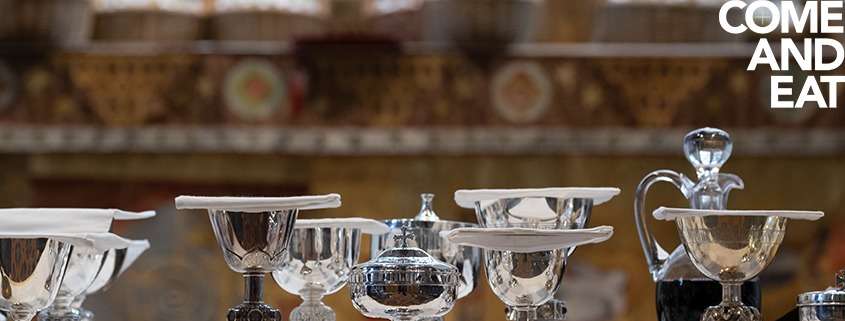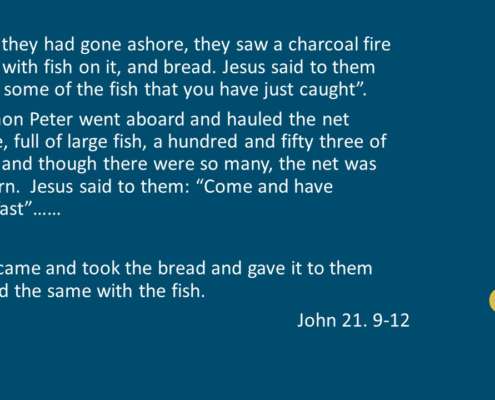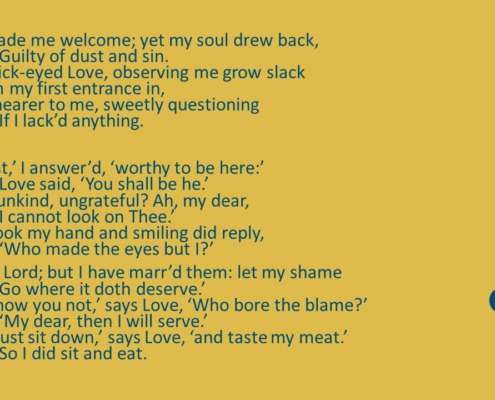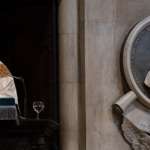A Presidential Address to the Oxford Diocesan Synod on Saturday 20 March by the Rt Revd Dr Steven Croft, Bishop of Oxford.
This week, we mark the anniversary of the first lockdown with a national day of reflection. We look back on all that has been lost over the last year – remembering especially those who have died, those who remain chronically sick, those who have given so much in the front line of the pandemic, those who have worked to develop and deliver the vaccines.
As we look back, I will say again and continue to say that our churches, schools and chaplaincies have been magnificent in their response. We owe a great debt to headteachers, parish clergy, churchwardens, chaplains of all kinds and many others for your courageous and sacrificial service, sustaining worship, ministry and community, offering practical care and support over these difficult months.
But my focus in this address is not to look back, but to look forward. There are many signs of hope. We have a road map for the unlocking of our national life which looks increasingly secure. Our schools re-opened on the 8 March. Heads and teachers reported real joy and purpose in that regathering.
As bishops, we have set out the expectation that parish churches should aim to open again for worship in something like normal patterns by Pentecost Sunday at the latest, providing the national timetable remains the same. Decisions will need to be made locally by clergy and PCCs about how to navigate through Holy Week and the Easter season and the balance of in-person and virtual worship up to and beyond Pentecost.
This morning I want to offer to the diocese a way of framing and thinking about our calling through the coming months, as we begin to regather as a church and restore something like our normal common life.
Especially I would like us all to hear and then to pass on an invitation from our risen Lord to come and eat, to gather again around the table of the Lord, to reset our common life and especially our sacramental life.
This invitation is taken from John 21. The risen Lord appears on the shore of the lake. The disciples have fished all night and caught nothing. The stranger on the shore invites them to cast the net on the right side of the boat. The net fills with fish. Simon Peter recognises Jesus, puts on his clothes (curiously) and jumps into the lake. There is already a charcoal fire burning on the shore, with fresh bread and fish cooked and ready to eat. When the disciples come to shore, tired after a long night fishing, Jesus says to them: “Come and have breakfast. Come and eat.” Then Jesus himself serves them: he takes the bread and gives it.
There are echoes of course of the feeding of the five thousand in John 6, of the last supper, of the Eucharist. The risen Christ is gathering his tired disciples to nourish them with his own presence, to be with them, to build them up, to bring healing and faith and hope again. This simple invitation, this sacramental action, comes before the more challenging dialogue which follows between Jesus and Simon Peter. The order is important.
And this is the invitation we need to hear for ourselves and to give as a church in this present time. This will be a season to set a tempo of gentleness and grace. That may not be easy. We have lost the habit of meeting together. There are any number of things we can argue about. Local finances will be stretched. There may not be enough resources or enough people to do the work. Congregations will probably not return all at once: there will be a need to listen, to love, to visit, to shepherd, to woo. It will be tempting to hector or scold or complain, but we should, I think, resist.
This needs to be a season of grace, of regathering. In our worship we will need to emphasise what the Lord has done for us, the everyday miracles of God’s provision. We will need to support one another as we enjoy again, gradually, the fuller opening of our beautiful church buildings; the privilege of Christian fellowship; the joy of singing together, and most of all, the ability to share together once again in the Eucharist, the meal which Jesus gives to us.
This will be a season of remembering and resetting the truth that we are a Church of word and sacrament. We have been sustained over the past year, largely, by the ministries of the word and thank God for that. But there will need to be a rebalancing again, a recentring of our common life on Jesus’ gift to us: to take bread and, in due course, wine, to give thanks, to break the bread and to share it together; ‘Do this in remembrance of me.’
We are not the hosts for this meal. Christ is our host, Christ is our banquet, Christ is the head who binds us into his one body as we eat and drink these holy gifts.
Because Christ is the host, we will need to take special care to ensure that everyone is welcome: that there are no barriers of race or class or gender or sexuality or disability to fence the table of the Lord. We will need to learn how to combine the virtual and the in-person to ensure that as many people as possible can access as much of our worship as possible in a way which feeds and sustains the whole people of God for our vital mission in God’s world.
Above all, we will need to ensure that every Eucharist is a journey into communion with the risen Christ. Christ is present as we take bread and wine and give thanks and break the bread and share it one with another.
George Herbert’s profound poem, Love III, captures this deep sense that it is Christ who calls and welcomes and is present and who feeds with his presence:
Love bade me welcome; yet my soul drew back,
Guilty of dust and sin.
But quick-eyed Love, observing me grow slack
From my first entrance in,
Drew nearer to me, sweetly questioning
If I lack’d anything.‘A guest,’ I answer’d, ‘worthy to be here:’
Love said, ‘You shall be he.’
‘I, the unkind, ungrateful? Ah, my dear,
I cannot look on Thee.’
Love took my hand and smiling did reply,
‘Who made the eyes but I?’
‘Truth, Lord; but I have marr’d them: let my shame
Go where it doth deserve.’
‘And know you not,’ says Love, ‘Who bore the blame?’
‘My dear, then I will serve.’
‘You must sit down,’ says Love, ‘and taste my meat.’
So I did sit and eat.
This common sense of Holy Communion as a meal of grace and invitation and union with Christ through faith will need to be deeper than the many smaller controversies which surround the way in which we celebrate and encounter Christ in bread and wine. This is not the moment to revive the controversies and arguments of past centuries. It is a moment to reset the Eucharist as the gift of Christ to his people at the centre of our common life again.
In the coming months, our whole world will be in need of healing: not just from the virus but from exhaustion, from inequality, from loneliness, from grief, from mental illness caused by lockdown. These diseases are present in every city, town and village in our diocese.
God has set in each, in the very heart of most, a church. At the entrance to every church there is a font: a place of washing and cleansing and forgiveness and new life. At the heart of every church there is a table: a place to gather and to meet with Christ and one another and for our fractious, hurting communities to find healing and love and to be formed again, slowly, into one body able to share Christ’s love with the world. The word Eucharist means, of course, thanksgiving. To share the Eucharist is to set our lives each week around appreciation and wonder at the gift of live and love and salvation.
There is an early tradition in the Church which describes the Eucharist as the medicine of immortality; a means of healing and grace. The words of St Ignatius of Antioch from the second century are quoted again by Pope Francis in his great letter, the Joy of the Gospel:
“The Eucharist, although it is the fullness of the sacramental life, is not a prize for the perfect but a powerful medicine and nourishment for the weak” (47).
We are weak, poor in spirit. We are invited to regather around the table of the Lord, to be formed again into a still more Christ-like Church for the sake of God’s world: contemplative, compassionate and courageous. As we gather, we dwell and feed on Jesus Christ, the eternal word of God, one with the Father and the Spirit; on Jesus Christ who took flesh, lived and loved, who gave his life for us on the cross and rose from death; on Jesus Christ who is present in his body, the Church and who calls and commissions and sends us in his service.
During this season as we gather and regather the people of God around the table of the Lord, we will, I hope, be able to help one another to imagine and think through what the Eucharist means in this season. I’ve asked some of our very creative liturgists to draw together some resources and prayers for parishes to mark this season of regathering and rededication. I hope to offer a further series of podcasts in the Easter season to support, especially, clergy and lay ministers who may want to teach further on the Eucharist as the church regathers. We are developing some graphics and e-cards and invitations which parishes can incorporate into their own material.
There will be so much to talk about and reflect on in the coming months. But I hope our primary conversation can be about Jesus and with Jesus and centred around this beautiful invitation from the one who is the Bread of Life to sit and eat.
This is the way we ourselves will be able slowly to be sustained and restored. This is how we will bring healing again to our communities, dried out and stretched by the pandemic.
In the gospel story, by the lakeside, the risen Lord again serves his disciples. There is a charcoal fire burning. There is fish which has been caught and is cooking. There is bread freshly prepared. The Lord invites his weary friends to come and eat and be restored. All of this is the equivalent of God’s red carpet, rolled out to us and to everyone.
This will be a season of rebuilding and restoration, God willing. Each of us will need to see and understand in the gift of the sacrament God’s red carpet rolled out for us: to hear the invitation to sit and eat. Each of us, clergy and people, will play our part in passing on that invitation, through signs and symbols and words, to our communities to gather, to be fed, to be formed into the body of Christ, his hands, his feet, his body in his world.
Come and eat.
+Steven
20 March 2021
With warm thanks to the Revd. Canon Dr. Peter Groves, Vicar of St Mary Magdalene and Associate Archdeacon of Oxford and to Canon Professor Carol Harrison, Lady Margaret Professor of Divinity for guidance on reading and research on this address.





